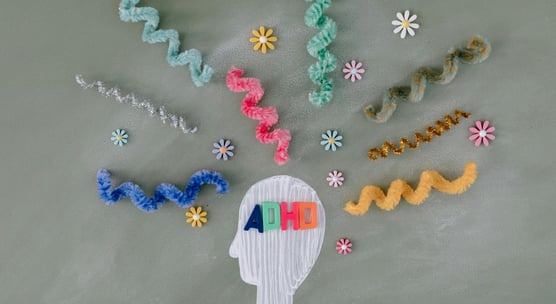Have you ever sat down to get something done, only to catch yourself cleaning your desk, checking your phone, or reorganizing a playlist instead?
If so, you may have wondered: Is this just procrastination or could it be adult ADHD?
Adult Attention Deficit Hyperactivity Disorder (ADHD) is confusing and hard to spot. It’s not just a childhood issue, many adults live with it without knowing. In grown-ups, the signs are more subtle and messy, often mistaken for stress, burnout, or just bad habits.
Here are 7 real-life signs of ADHD in adults and how to recognize the difference between being overwhelmed and needing help.
1. Inattentiveness: A Core Symptom of Adult ADHD
You start a task with full intention but get pulled into checking emails, replying to WhatsApp messages, and suddenly forget what you were doing. It could be a sign of inattentive ADHD
Signs of inattentive ADHD in adults include:
Trouble concentrating for long periods
Frequently zoning out mid-task or mid-conversation
Forgetting recent instructions or plans
Missing small but important details
This is one of the most common reasons people search for an ADHD diagnosis in adults.
2. Hyperfocus: The Unexpected ADHD Symptom
While most people associate ADHD with distraction, some adults with ADHD experience hyperfocus, where they get stuck on one task for hours and tune everything else out.
Examples of hyperfocus in ADHD:
Spending too much time on hobbies or tasks without realizing
Ignoring time-sensitive responsibilities
Difficulty shifting attention to other priorities
This can create serious issues in relationships and work, especially when others feel ignored.
3. Impulsivity: Quick Actions, Regret Later
Impulsive behavior is a classic symptom of ADHD, but in adults, it often shows up in subtle ways.
Signs of impulsivity in adults with ADHD:
Interrupting others unintentionally
Speaking out of turn or oversharing
Making quick decisions without considering outcomes
Struggling to resist distractions or cravings
This kind of impulsive pattern often causes financial strain, communication issues, or broken routines.
4. Disorganization: Daily Chaos and Mental Clutter
Many adults with ADHD don’t appear “hyperactive” - they simply live in a constant state of chaos.
Disorganization symptoms in adult ADHD include:
Losing items like keys, wallets, or important documents
Constantly running late or missing appointments
Difficulty prioritizing tasks
Feeling overwhelmed by basic planning
It’s not just messiness it’s a persistent sense that life is hard to manage, even with good intentions.
5. Mood Swings: Emotional ADHD Symptoms
While ADHD is often linked with attention, it also affects emotional regulation. Emotional dysregulation in ADHD can make moods unpredictable.
Signs of emotional ADHD symptoms:
Quick emotional highs and lows
Easily frustrated or irritated
Sensitivity to rejection or criticism
Feeling emotionally drained without clear cause
Emotional shifts like these are often seen in ADHD in women, where the condition is commonly misdiagnosed as anxiety or mood disorders.
6. Motivation Issues: You Want To, But Can’t Begin
Tasks that others find simple can feel like mountains when you have ADHD. Even if you care deeply, you might still procrastinate.
Low motivation symptoms in ADHD:
Struggling to begin tasks, even important ones
Relying on last-minute pressure to finish things
Feeling “stuck” or mentally paralyzed
Constant guilt about being unproductive
This often leads to self-blame, when in reality, it’s part of how executive dysfunction in ADHD works.
7. Restlessness and Sleep Struggles: The Hidden ADHD Sign
Many adults with ADHD find it hard to settle both physically or mentally even during night. That inner restlessness is often dismissed but deeply affects well-being.
ADHD-related restlessness includes:
Trouble falling or staying asleep
Feeling mentally overstimulated at bedtime
Fidgeting or needing constant movement during the day
Chronic fatigue from poor rest and racing thoughts
Over time, this can compound other ADHD symptoms and make them worse.
What to Do if You Recognize These ADHD Symptoms
If these signs sound familiar, you’re not alone here are the next steps you should take
Next steps:
Speak to a licensed therapist or psychiatrist who understands adult ADHD diagnosis
Explore online platforms that offer ADHD tests and evaluations
Track your behaviors, emotions, and focus patterns to build awareness
Consider behavioral therapy, coaching, or structured routines for support
Online ADHD evaluations can also be a discreet and convenient place to begin.




